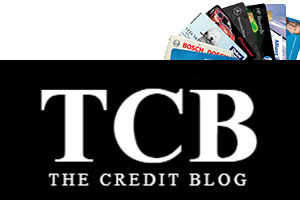What is business credit and how do you obtain it? Most people know about personal credit and its purpose. Credit gives people the ability to make big purchases upfront and pay for them over a mutually agreed-upon period. The borrower receives the purchase, and the creditor makes money from the borrower over that specific amount of time through interest and other fees. However, business credit is a bit different. In business, you have to spend money in order to make money. Therefore, companies need cash and credit to have success and remain in business.
Entrepreneurs can create a separate credit entity for their business. In time, the business credit reporting agencies or bureaus form a profile for the company. Companies can borrow needed funds in a few different ways. The creditor or investor trusts the business owner to pay the borrowed money back to them with interest.
Business reporting agencies control and update business credit profiles to reflect the business’ debt repayment behaviors. Depending on how well the company pays back its debts, it can build up its credit profile. Credit grantors use the business’ credit profile to decide whether or not to lend them funds and how much they are willing to lend them.

Establishing a Business
Establishing business credit for the first time starts with creating a separate legal entity. Once you decide the name of your business, you must determine the type of business you’ll have. Each type is different in terms of how they are taxed and how the owners are liable in certain situations.
These business types include
- Sole Proprietorship
- Partnership
- Limited Liability Corporation
- S-Corporation
- C-Corporation
You then need to apply for a tax identification number or employer identification number as a business owner. The government assigns this number for tax filing and reporting purposes.
Types of Business Credit
After properly forming your business and starting operations, you can apply for credit in the company’s name. Startups and existing businesses with little or no credit can receive various types of credit loans. The basic types of business credit you can obtain are as follows.
- Vendor Credit
- Supplier Credit
- Retail Credit
- Service Credit
- Business Credit Cards
Vendor Credit
Individuals and businesses can offer short-term financing to you as a startup for their products and services with few requirements. Vendors may require an initial purchase or a deposit to extend credit.
Supplier Credit
Supplier credit is when a supplier will provide supplies to your business and defer the payment until a later date. It helps you conserve funds by having more time to sell your products or services before paying for the supplies to make them.
Retail Credit
Many retail businesses will offer a line of store credit for businesses. These businesses usually will offer a credit card. Usually, the company can only use these credit cards at that particular store that offers the card. Business credit cards or store credit are beneficial to business owners that regularly shop in those stores for their business.
Service Credit
Service credit is often the most accessible form of business credit you can obtain and establish for the first time. In addition, utility services like internet, business phone line, cable, satellite TV, and web hosting can be provided for your business after making agreements with these providers.
Business Credit Cards
A business credit card can be a very useful tool for businesses to purchase pretty much anything for their business. However, it’s essential to keep your business and personal purchases separate. To protect your personal credit, you should apply for a business credit card that only reports to business credit agencies.

Protect Your Business Credit Profile
These five methods are how a business can establish and maintain its credit for the first time. After some time has passed with responsible credit behaviors, you can develop your business credit profile. It’s essential that you regularly monitor your business’ credit reports and status to ensure it’s accurate and updated with your recent financial behaviors.
In this technologically advanced world, there are many hackers who will try to steal identities and credit cards for their own use. Unfortunately, this behavior is relatively common. Therefore, you must be diligent and check your credit scores and reports. If you end up having your identity stolen and the thief misuses your information, the damage is sometimes irreversible.
Business credit allows banks and other lenders to assess your company’s creditworthiness. Your business credit report impacts the amount of credit, payment terms, interest rates, and insurance premiums that your business will pay. By establishing business credit, you can better your business’ financial reputation, which can lead to more opportunities over the life of your business.

